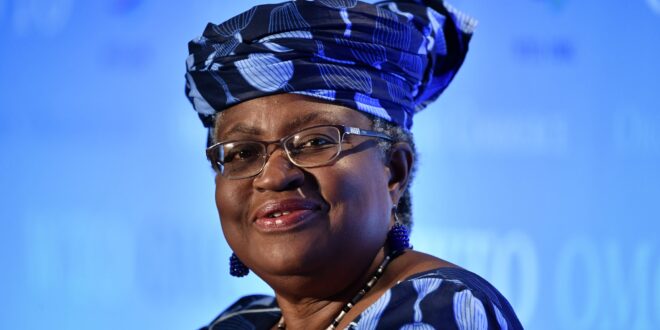The World Trade Organization (WTO) has shed light on the challenges faced by Nigeria’s agricultural sector, particularly its inability to meet international sanitary and phytosanitary (SPS) requirements for its export commodities.
WTO Director-General, Ngozi Okonjo-Iweala, highlighted this issue at the launch of seven trade support programs in Abuja, aimed at boosting Nigeria’s trade and industry standards.
Despite the abundance of arable lands and increased investments, Nigeria has transitioned into a net importer of farm produce that was previously cultivated domestically.
This undermines efforts to ensure food sustainability and has led to a decline in the country’s leading position in the agriculture export markets.
To address this, the WTO, in collaboration with the Standards Trade Development Facility (STDF), International Trade Centre (ITC), and the Nigerian Export Promotion Council (NEPC), has initiated a project to improve international safety and quality certification for sesame and cowpeas.
The project, funded with $1.2 million, aims to enhance agricultural practices and compliance with global standards, thus boosting the country’s non-oil export.
Okonjo-Iweala emphasized the need to tackle trade-related problems on the supply side, which are hindering the realization of Nigeria’s agricultural export potential.
She pointed out that Nigerian cowpea and sesame exports have faced rejections in several destination markets due to non-compliance with international SPS requirements.
To improve the quality of Nigeria’s shea exports, the WTO is partnering with relevant stakeholders to build the capacities of stakeholders across the sesame and cowpeas value chains.
This includes better understanding market access requirements, improving agricultural practices, and ensuring compliance with international standards.
In addition to this, the Nigerian government is also implementing policies and mechanisms to facilitate and enhance trade, while removing all bottlenecks hampering trade and investment.
The ministry of Industry, Trade and Investment has started rolling out a N50 billion Presidential Conditional Grant Scheme and a N150 billion intervention through the FGN MSME and Manufacturing Sector Fund.
The global value of sesame exports and its value chain is projected to surge from $7.35 billion in 2022 to $9.27 billion by 2032, while the worldwide value of cowpeas is expected to rise from $7.2 billion in 2023 to $9.43 billion by 2028.
With the implementation of these initiatives and funding, Nigeria is expected to enhance the quality and standard of sesame and cowpea exports, thus increasing global acceptance and improving the quality of these products consumed domestically.
Subscribe to the Advocate News letter and receive news updates daily in your inbox.
 Advocate.ng Latest news update on politics, entertainment, sport and more
Advocate.ng Latest news update on politics, entertainment, sport and more




